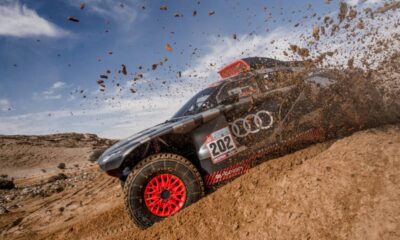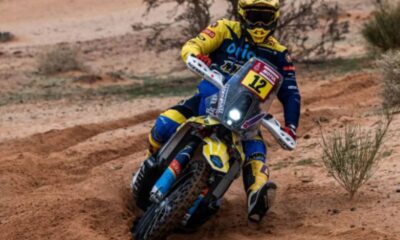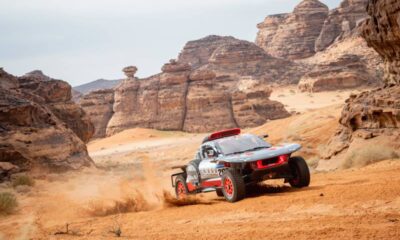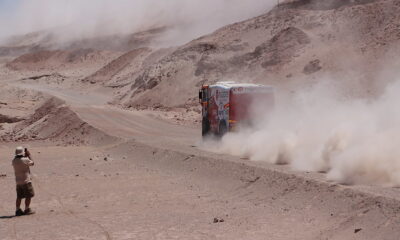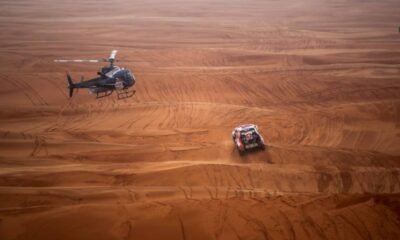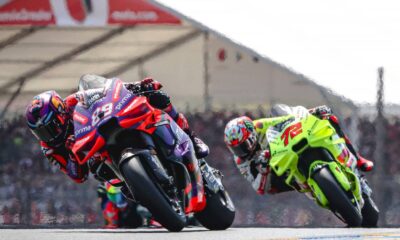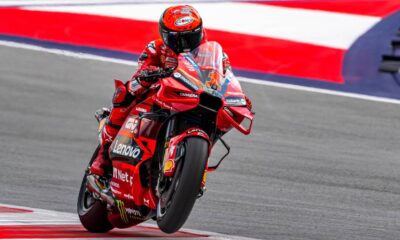Motorsport
Dakar Rally? That’s an extremely expensive affair! It runs into millions, says Czech biker Michek. How much will you pay in total?
Czech motorcycle racer Martin Michek took part in the famous and tough Dakar Rally as usual. In an exclusive interview with Ruik, he revealed how much it actually costs to participate in the Dakar and why it is also important to have your own team.
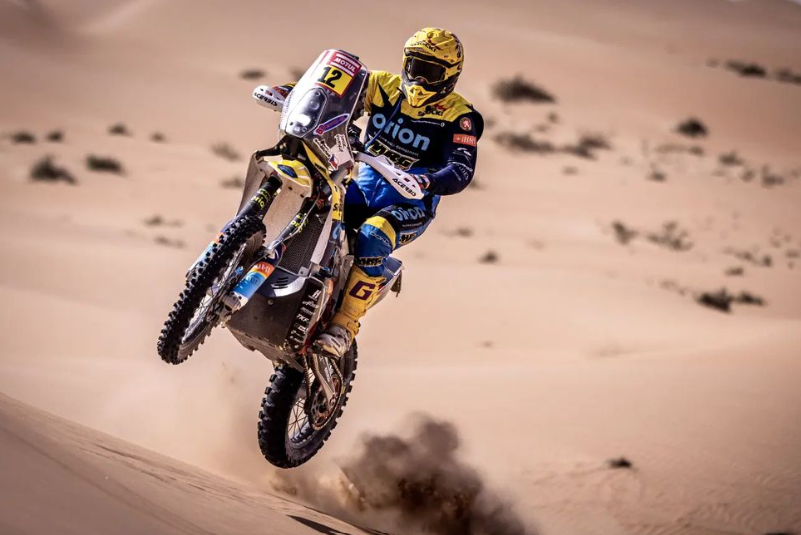
Czech motorcycle racer Martin Michek took part in the famous and tough Dakar Rally as usual. In an exclusive interview with Ruik, he revealed how much it actually costs to participate in the Dakar and why it is also important to have your own team.
Eleventh place in the motorcycle category, the best Czech biker and the best non-factory rider – that’s Martin Michek’s calling card at this year’s Dakar. He lost one hour and 42 minutes to the winner Kevin Benavides.
In an exclusive interview with Ruik, the Czech rider talked not only about his performance at this year’s Dakar Rally, but also revealed how much money it will actually cost to participate in the Dakar.
Dakar? An extremely expensive affair
This year’s Dakar Rally had a total of fourteen stages, and of course there was a lot going on. But how much does it cost to enter and what do you need to do?
“At the moment, the way it is with the entries is that a rider has to know about six months in advance that he will start the Dakar. The more they delay it, the more financially demanding it is. However, the application itself costs 17,000 euros. Then it also depends on what class one is going to ride. Each has its own financial valuation,” Michek said in an interview with Ruik.
“Of course, in my category, for example, there is also the accompanying car, which is roughly 5,000 euros and up. Plus I have to have two people with me – one mechanic and one person who will drive the car. Each mechanic costs nine thousand euros. So I’m still sitting on my couch at home and I’ve already got to get over one million crowns,” he explains.
This does not include the motorbike, which of course has to be bought and retrofitted, the various spare parts, the car, the preparation for it or the materials for the race itself. In total, he says he will pay around CZK 3.5 to 4 million for the Dakar.
I have my personal sponsors
Later in our interview, Michek revealed that he also has to find his own sponsors, who of course support him during his time on the Dakar Rally.
“So of course there are some team sponsors that the boss gets, but I have my personal sponsors. A lot of people think that we are professionals in rallying. But it’s not like that. I’m an amateur because I don’t make money, or I don’t get paid for it. On the contrary, I have to raise the money to go to the Dakar. It’s a bit strange that way,” he admits.
And why does he find personal partners? In short, so that he can not only race the Dakar, but also train there, prepare or improve his navigation. “In the end, we are already looking for sponsors for the Dakar 2024,” he says.
Why is it important to have a team?
Apart from financial matters or how he sees the Ales Loprais incident from his point of view, we also talked about why it’s important to have your own people at the Dakar and how it all works. He also gave a rough overview of the course of each day.
“Getting up in the morning is a big madness because we bikers get up first and when I’m at the front I get up between two and four in the morning. Depending on how many kilometres we have to cover to get to the start of the stage, that’s where the racing really starts,” Michek explains.
However, based on his words, for him the race starts in the bivouac itself, because each competitor has a time limit by which he has to arrive at the start of the stage. And, of course, he also has to keep an eye on his start time.
He then goes on to explain why it is very important to have a team at the Dakar, when, after arriving at the bivouac, he hands over his bike to the mechanics who take care of its technical condition.
“Every time I finished a stage and then had to go back to the bivouac, I handed my bike over to the mechanics to do their job, to get my bike ready for the next day. So this was a big simplification for me to be able to arrive, shower, eat and relax,” he concluded.
Sources

-
Motorsport5 days ago
Jorge Martín is rewriting history! the 26-year-old Spaniard became the new MotoGP World Champion, Bagnaia succumbed despite his best efforts
-
Motorsport6 days ago
Bagnaia keeps hopes of a miracle alive with MotoGP sprint win in Barcelona, third-placed Martín one step away from title
